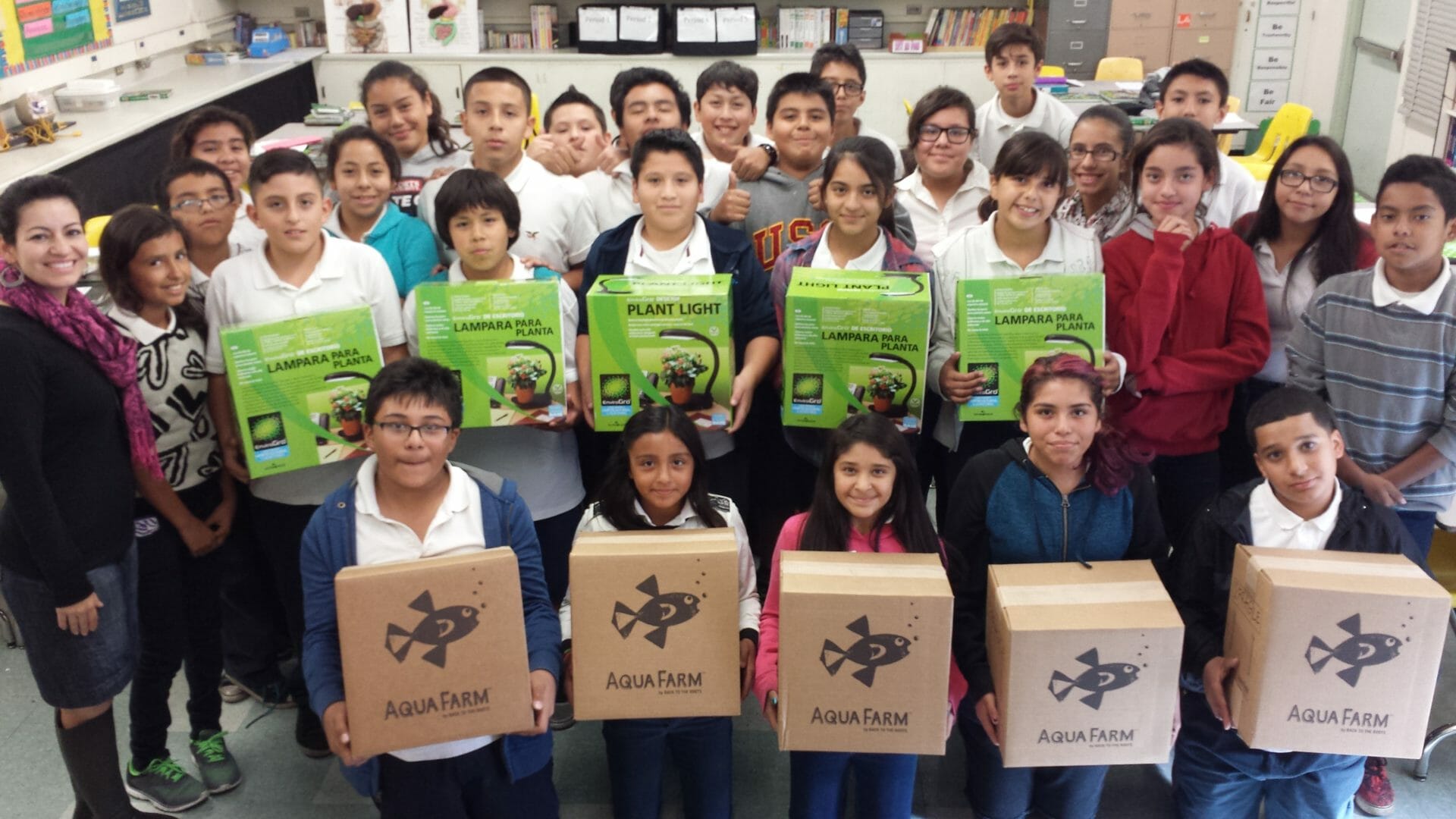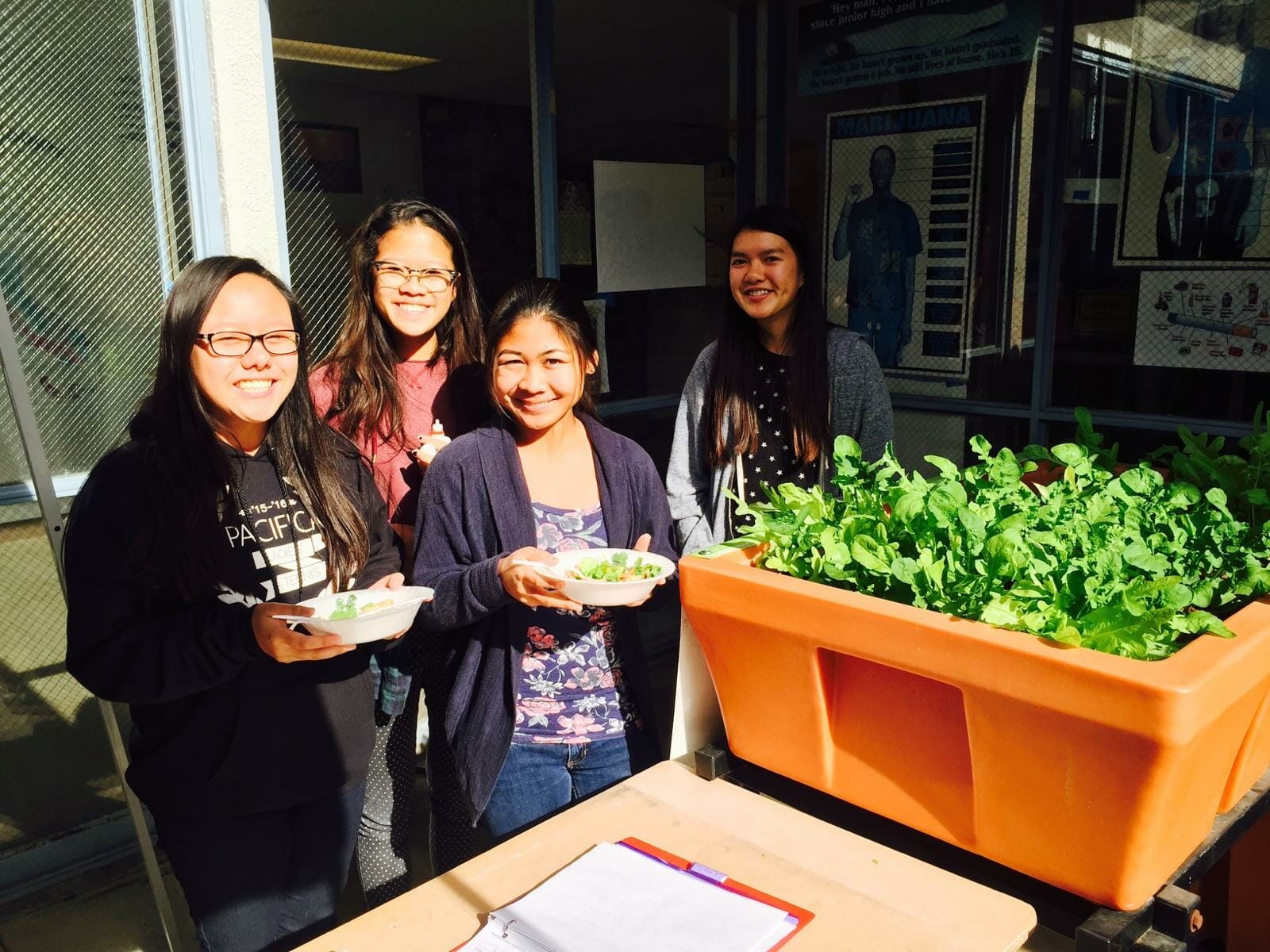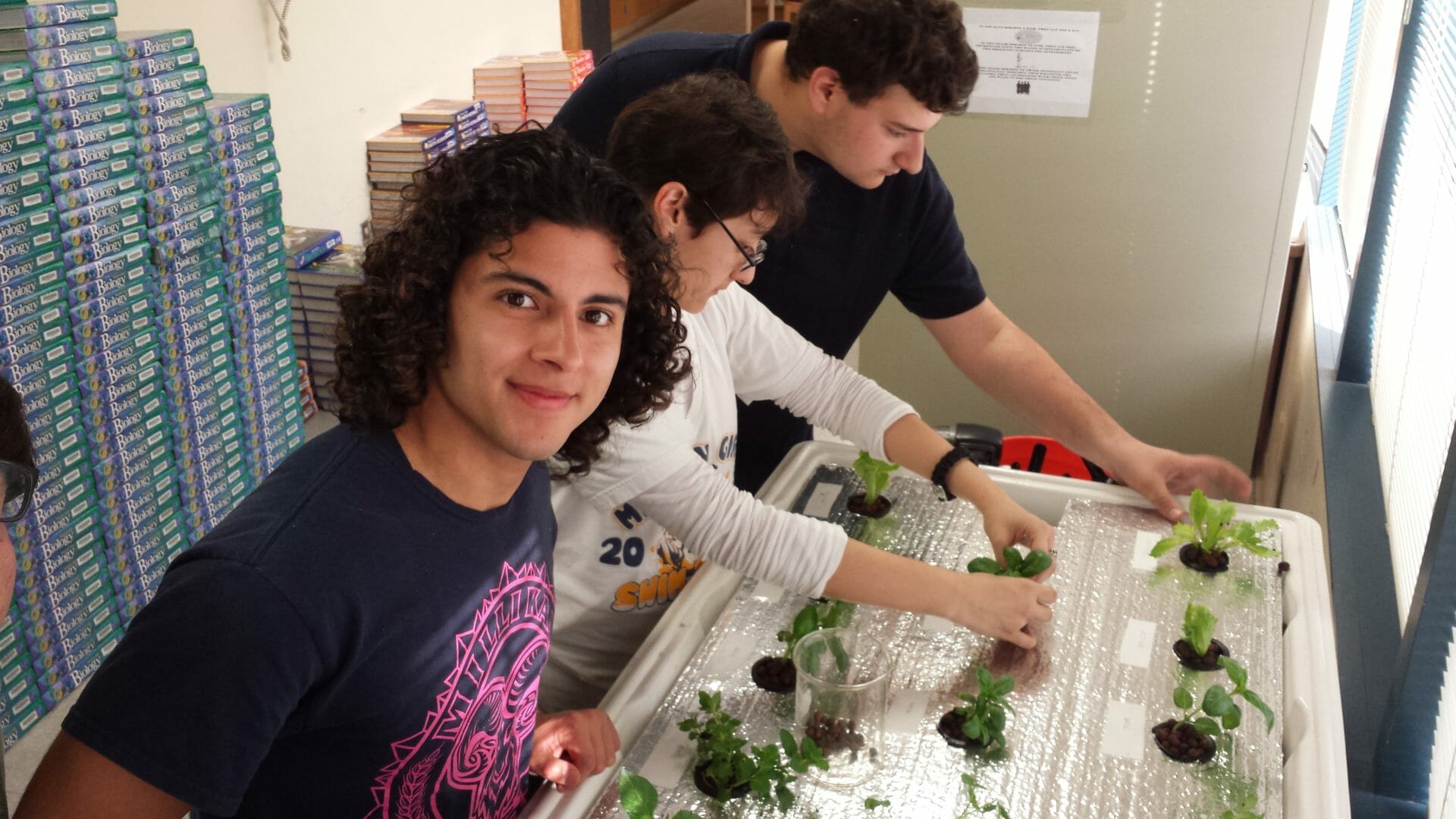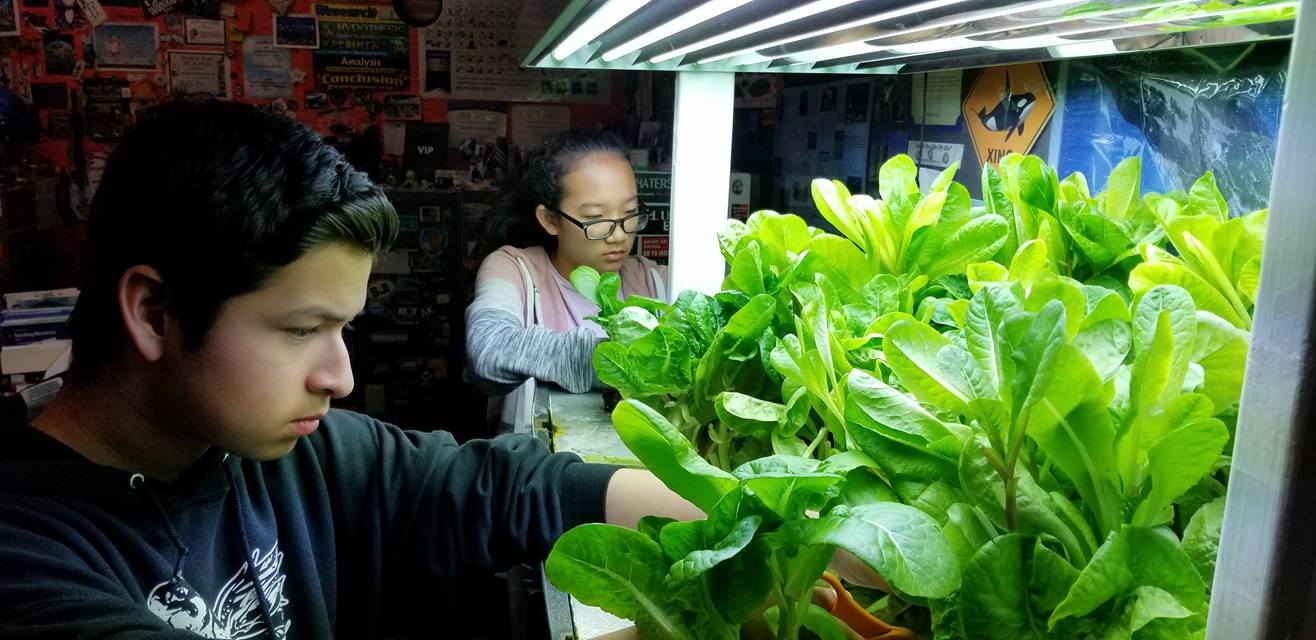Conserving water and growing food where we live are two critical components to sustainability. Aquaponics uses 90% less water than traditional soil farming, can be done in large cities because of its smaller footprint, and can provide fish and organic plant crops.
Teaching aquaponics in the classroom provides a perfect opportunity for many hands-on lessons in science education. We have taught this program in grades 2- college level. We also teach adult classes in our community. The premise behind aquaponics is that the fish produce waste which is then utilized by the plants.
Aquaponics production can also be done vertically, making it possible to have farms in large densely populated cities because of its smaller footprint.
This program also provides “Green” job skills. Several of our students have gone on to work with or start their own aquaponics gardens and farms.






